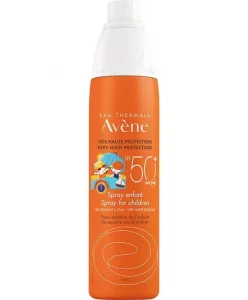
When it comes to buying baby skin care products, many parents can feel overwhelmed by the endless options available on the market. While it’s essential to keep your baby’s skin clean and moisturized, choosing the wrong products can do more harm than good. From harmful chemicals to potential allergic reactions, there are a variety of factors to consider before making your purchase.
In this article and in collaboration with the dermatologist Dr. Roaa El Sebaey, we’ll share the essential things you must know before buying baby skin care products. With this information, you can confidently choose the right products to keep your little one’s delicate skin healthy and protected.
Before you make a purchase, there are a few essential things you must know to keep your baby’s skin healthy and protected.
1- Understand your baby’s skin type
Just like adults, babies have different skin types, and the products that work for one baby may not work for another. Understanding your baby’s skin type can help you choose the right products that will work for them. Generally, baby skin is classified into four categories:
- Normal: This type of skin is neither too dry nor too oily, and it has no visible signs of irritation.
- Dry: If your baby’s skin feels rough or flaky to the touch, they likely have dry skin.
- Sensitive: Babies with sensitive skin are prone to rashes, itchiness, and redness, especially when exposed to irritants.
- Eczema-prone: Eczema is a common skin condition that causes dry, itchy, and inflamed skin. If your baby has eczema, you’ll need to choose products that are gentle and free of irritants.
Identifying your baby’s skin type can help you narrow down your options and choose products that are appropriate for their needs.
2- Read the labels
Before you buy any baby skin care product, make sure to read the labels carefully. This will help you identify any potential irritants or harmful ingredients that could harm your baby’s skin. Look for products that are free of harsh chemicals, fragrances, and dyes, as these can cause irritation and allergic reactions. Instead, choose products that are gentle, natural, and free of irritants.
Some ingredients to avoid include:
- Parabens: These are preservatives that are used in many skin care products. However, they have been linked to hormonal disruption and other health issues.
- Phthalates: These are chemicals that are used to make plastics more flexible. They have been linked to a variety of health issues, including reproductive problems and developmental issues.
- Sulfates: These are harsh detergents that are often used in soaps and shampoos. They can be drying and irritating to the skin.
Dr. Roaa El Sebaey adds that the following ingredients should also be avoided in baby skin care products: retinol, salicylic acids, glycolic acid, benzoyl peroxide, any hydroxy acid, and any ingredient with a peeling action. On the other hand, she enumerates some ingredients to look for: ceramide, omega range, vaseline, paraffin, zinc oxide, thermal water, and glycerin. These lightweight ingredients can deeply nourish, moisturize and protect your baby’s skin.
3- Choose the right products for each body part
When it comes to baby skin care, one size doesn’t fit all. Different parts of your baby’s body require different types of products. Dr. Roaa El Sebaey believes that it is best to use a separate product for the baby’s face and body.
For example, you’ll need a gentle and tear-free shampoo that won’t sting your baby’s eyes for their hair and scalp, a mild soap for their body, and a thick cream for their diaper area that will protect their skin from irritation and rash.
4- Look for products with natural ingredients
When it comes to baby skin care, natural is always better. Look for products that contain natural, plant-based ingredients that are gentle and nourishing to the skin. Some natural ingredients to look for include:
- Aloe vera: This plant is known for its soothing and moisturizing properties, making it an ideal ingredient for baby skin care products.
- Calendula: This herb has anti-inflammatory and antibacterial properties, making it great for soothing irritated skin.
- Chamomile: This herb has calming and soothing properties, making it ideal for sensitive skin.
- Coconut oil: This oil is rich in fatty acids and antioxidants, making it an excellent moisturizer for dry skin.
5- Consider the packaging
The packaging of baby skin care products can also play a role in keeping your little one’s skin healthy. Look for products that come in opaque or dark-colored bottles to prevent light exposure, which can break down the ingredients and reduce their effectiveness. Additionally, products that come in pump bottles or tubes are more hygienic and easier to use than products that come in jars, which can harbor bacteria and other germs.
6- Know when to use sunscreen
Sunscreen is an important part of protecting your baby’s delicate skin from the sun’s harmful UV rays. However, the American Academy of Pediatrics recommends waiting until your baby is six months old before using sunscreen. Before six months, it’s best to keep your baby out of direct sunlight and use protective clothing and hats to shield their skin.
When choosing a sunscreen for your baby, look for one that is specially formulated for babies and young children. Choose a broad-spectrum sunscreen that protects against both UVA and UVB rays, and has an SPF of at least 30. Additionally, look for a sunscreen that is water-resistant and free of fragrances and other irritants.
Our favourite:
Eau Thermale Avène Sunscreen Spray for Children SPF 50+
7- Test new products first
Before using any new skin care products on your baby, it’s important to test them first to make sure they don’t cause any adverse reactions. Apply a small amount of the product to a small area of your baby’s skin and wait 24 hours to see if any irritation or allergic reactions occur. If there is no reaction, it’s safe to use the product as directed.
In conclusion, choosing the right skin care products for your baby can be a daunting task, but it’s an important part of keeping their delicate skin healthy and protected. By understanding your baby’s skin type, reading the labels, choosing the right products for each body part, looking for natural ingredients, considering the packaging, knowing when to use sunscreen, and testing new products first, you can make informed choices and keep your little one’s skin healthy and happy. Remember, when it comes to baby skin care, less is often more, so choose products that are gentle, natural, and free of irritants.










